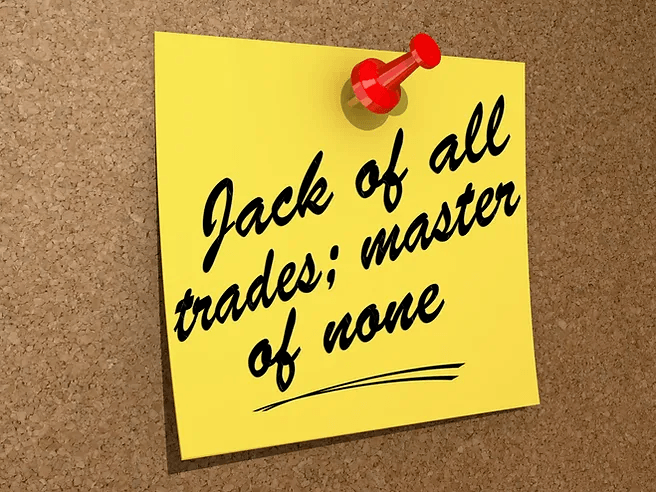
Who are you ?
I know a little about lots of things. I have done extensive training in a few modalities but do not have an in depth knowledge of the subject, like reformer pilates for instance. I do not have years of experience gained from teaching this method. My sessions would be very poor quality if they were put alongside those teaching daily. I only taught very small groups or 121 for a short period of time. I have not stayed up to date with the method.
I am certified to work with pregnant and post-natal clients. I only work with those that require specific things due to pain using my manual skills and movement 121. I refer everyone else to an expert in women with this population. I feel they will get far more from being in a group of the ladies where they can chat and bond and be under expert guidance from a well qualified, very knowledgeable and most importantly very experienced practitioner.
So I know enough to be safe, I know enough to talk to people about these things and I know enough to send them to people that know a whole lot more and who will be able to give them an in-depth approach.

Being a master of your trade or niche market has some great benefits.
• In-depth knowledge
• Highly skilled in this area
• Mastery of a trade could open business opportunities
• Demand for high level of skills
• Recognition within the industry or in your local community
• Thought leaders get to guide and teach others and keep high standards
• Experts become innovators, developing products and techniques. Depth of understanding allows them to push boundaries
• Many medical professionals prefer working with someone who is highly skilled in a subject
Which hat am I wearing today?

A jack of all trades has benefits too.
• You are adaptable
• You can step in to different roles
• Problem solving ability – seeing things from different angles
• Can be creative with a wider set of skills
• Good at collaboration and coordinating as they have a basic understanding of many roles
• Can often be better at net-working as they can communicate in many areas about a host of things
• More able to value an integrated or multidisciplinary approach due to having a superficial but diverse knowledge about different things
• They can bridge gaps, and are often coordinators in a multidisciplinary approach
There is a downside to a “Jack of all trades market”.
In a crowded market how does an expert stand out?

An over-saturated market can undervalue an expert in a particular field. • Increased competition offering the same product can drive prices down • Clients may opt for the cheaper alternative even if the alternative lacks the same level of experience of skill
• Something that was seen as a unique skill that becomes widespread devalues the experts specialist knowledge
• As more people enter a modality speciality it is harder to differentiate a true expert from those with just surface-knowledge
• Price – An expert with many years training in a subject and superior skills could be competing with someone with less experience and lower rates.
• Market saturation and clients not recognosisng a novice and master
I am proud to be in both camps and see myself in many of the descriptions in both.
The skills I have acquired over the years give me a wide toolkit to work with, those same skills also help me recognise when there might be someone with more expertise.
I love being able to communicate with a wide network of therapists and feel comfortable asking a question and referring clients. It is really nice having my colleagues now coming to me with questions and referring clients to me in my “master” (Niche is a nicer word) area. There is so much to learn and keep on learning and refining in my niche. I am content with knowing enough to know when to work with someone, when to collaborate and when to refer.
We cannot be everything to every client. If we want to offer our patients the best and long-term results, our eyes should be open to other complementary therapies and practitioners with specialised skill sets.
Recognise your skills. Recognise the skills of others. Value your expertise and acknowledge your level of expertise in something. Value the expertise of those around you and acknowledge their expertise.
